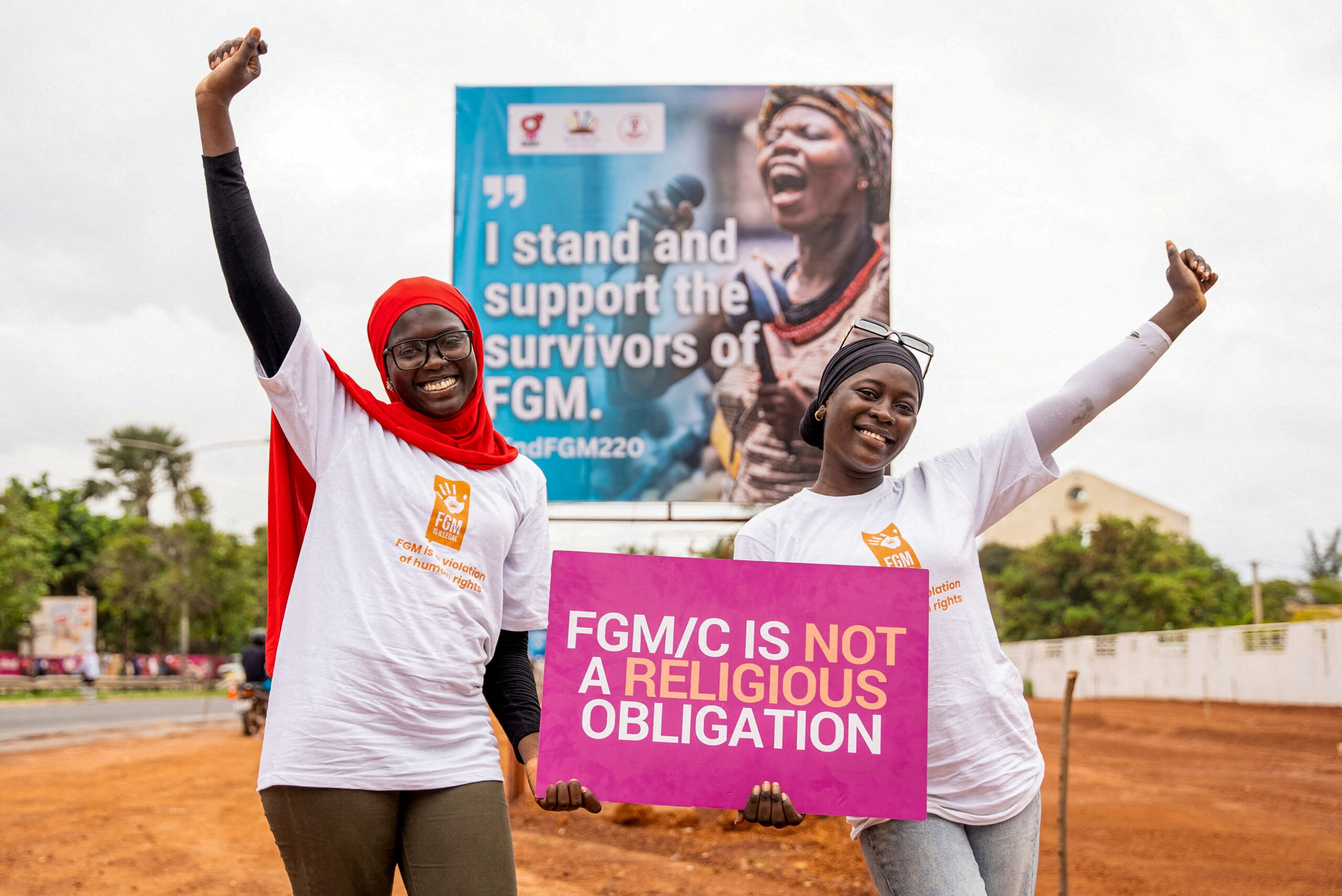
Bill to lift the ban on female genital mutilation is rejected by the Gambia parliament
A bill that would have lifted the country’s ban on female genital mutilation was rejected by the Gambia’s parliament on Monday after all of its provisions were rejected by legislators.
Following the vote, the Ministry of Information issued a statement saying, “The ban on FGM is still firmly maintained in the Gambia.” “Government stands firm in its resolve to eliminate this harmful practice.”
For the first time in the West African nation, a bill to reverse the ban divided villages, families, and the parliament over female genital mutilation.
Almaneh Gibba, the legislator who brought the idea to parliament, claimed he was defending religious and cultural rights in the nation with a majority of Muslims, where female genital mutilation is common and deeply ingrained. Numerous Islamic academics contest his claims.
According to the World Health Organization (WHO), forced marriage has no health advantages and can result in severe bleeding, shock, mental health issues, and even death.
Tedros Adhanom Ghebreyesus, the director of WHO, and senior UN officials applauded the parliament’s decision in a joint statement.
It is impossible to exaggerate how precarious the fight to end FGM is. Hard-won victories are in risk of being lost due to attacks on women’s and girls’ rights in many nations,” the statement stated.
With just five of the 53 MPs voting against the bill, it passed a second reading in March. This raised concerns among advocates for human rights that the Gambia would be the first country to remove a ban on the practice.
However, the health and gender affairs committees of the parliament released a joint report on July 8 suggesting that Gambia keep the ban in place following weeks of public hearings.
The report was approved by lawmakers by a vote of 35 to 17 with 2 abstentions. Political experts speculated that statements from doctors and survivors about the detrimental effects of FGM may have influenced lawmakers.
Prior to the third and final reading of the measure, which is set for July 24, Parliament again voted on Monday on each of the bill’s sections.
The measure was prevented from proceeding to the final reading by Parliament Speaker Fabakary Tombong Jatta after about thirty Members of Parliament voted against each of the clauses.
“The (National) Assembly cannot be engaged in such a futile exercise as to allow the bill to proceed to a third reading,” Jatta stated following the vote. “The bill is rejected and the legislative process exhausted.”
Because the parliamentary session was still in session, Gibba stated he was unable to remark at this time.
Fatou Baldeh, an anti-FGM activist who was abducted when she was eight years old, expressed her relief and disappointment that the law had even been given consideration.
“The fact that the lives of our women and girls were at danger is not something I am happy about. It saddened me,” Baldeh remarked.
The rejection of the bill, according to Gambian legal professor Satang Nabaneh, demonstrated Gambia’s adherence to its international and human rights commitments.
“We are hoping that this is a clear call for implementation (of anti-FGM laws),” she said.
The government disputes the claims made by anti-FGM activists that the 2015 law outlawing the practice has not been adequately implemented.
In 2023, three women were found guilty of the first and only known case of infant girl cutting, which prompted Gibba to submit the repeal bill.
All Categories
Recent Posts
Tags
+13162306000
zoneyetu@yahoo.com



